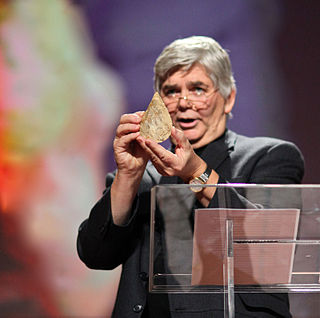A Quote by Denis Dutton
It's a grave mistake in publishing, whether you're talking about Internet or print publication, to try to play to a limited repertoire of established reader interests.
Related Quotes
It seems to me that we make a terrible mistake in talking about Trump as some kind of essence of evil. Trump is symptomatic of something much deeper in the culture, whether we're talking about the militarization of everyday life, whether we're talking about the criminalization of social problems, or whether we're talking about the way in which money has absolutely corrupted politics. This is a country that is sliding into authoritarianism.
When we talk about computer network exploitation, computer network attack, we're not just talking about your home PC. We're talking about your cell phone, and we're also talking about internet routers themselves. The NSA is attacking the critical infrastructure of the internet to try to take ownership of it. They hack the routers that connect nations to the internet itself.
If you find common subjects or interests with a prospect, you can establish a business friendship. Ask about a diploma or picture. Your prospect will be glad to talk about what he/she just did or likes to do. Try to captivate him or her in intelligent conversation with engaging questions about their interests. It's obviously better if you're versed in the subject, because that's where rapport is established. Get the prospect to talk about their passions and what makes them happy.
Don't wait for success, but for the respect and interest of those who read you. At the start it could be a classmate, someone who shares your interests. Before sending off the manuscript for a novel to a publishing house, it would be a good idea to try writing short stories, and publishing them in a local magazine.
The minute you finish a piece of writing it doesn't belong to you, you don't write it any more, it belongs to you, the reader, the listener, the audience. So the less you know about whether or not this is me talking about my life or this is me talking about your life, I think the better. Then it can belong to you and it can live outside of the moment in which it was conceived.
Desktop publishing was a big innovation that meant small groups or even poor societies could do their own publication without the capital investment in a major printing press. That's a big difference. Same is true of more advanced technologies - it can offer plenty of liberatory possibilities - can - but whether it does or not or whether it serves for coercion depends on socioeconomic decisions.
I think a play can do almost anything, because it's also a static form, much more so than in a movie. In a movie you can move the scenery, you can do anything any way. A cartoon, happens in a limited amount of space and a limited amount of time, and you can only get so many words before the reader's gonna get impatient. All of these forms that I enjoy are in a sense a slight of hand, where you have to suggest much more than you really show. You have to, in a sense, seduce the reader and trick the reader or the audience into going with you.
She [Hillary Clinton] knows the people well. I think there is - you know, also talking about breaking down barriers and talking about that, whether we`re talking about that in economic terms. I mean, she`s the only person who has been out there talking about white privilege and talking about sort of the intersectionality of some of these issues.









































